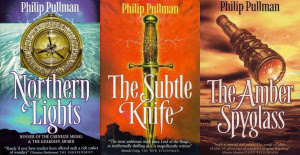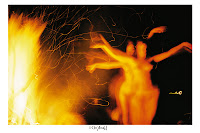Book Recommendation: Christianity's Dangerous Idea
 I once heard it said that Alister McGrath is at his best when he’s writing as a historian. On this evidence, I agree. Christianity’s Dangerous Idea is a fantastic book on the history of Protestantism that is – to selectively quote from the blurbs – highly readable, wonderfully wide-ranging, accessible and engaging. All those adjectives are important, for they highlight that McGrath is not writing for an academic audience, as he makes clear in his Introduction, although he does make extensive use of the best scholarship available. (Looking through his endnotes was exhausting – where does he find the time to read this stuff?)
I once heard it said that Alister McGrath is at his best when he’s writing as a historian. On this evidence, I agree. Christianity’s Dangerous Idea is a fantastic book on the history of Protestantism that is – to selectively quote from the blurbs – highly readable, wonderfully wide-ranging, accessible and engaging. All those adjectives are important, for they highlight that McGrath is not writing for an academic audience, as he makes clear in his Introduction, although he does make extensive use of the best scholarship available. (Looking through his endnotes was exhausting – where does he find the time to read this stuff?) This is both an important and great book because it shows why history matters in a manner that is accessible to the layperson. History helps us make some sense of how we got here and offers some answers as to why that is so. It gives us context. History makes things concrete: it shows how various values, beliefs and cultures are sewn together in a complex web and affect the lives of real, living people like you and me. In that sense, it can never be abstract: for us younger ones, imagine living through May 13, 1969 in Malaysia. History helps us avoid the pitfalls of the past, not perfectly, mind you, since it is surely difficult to detect the newly-laid snares of well-worn pathways. History also shows that life is messy; it sharpens our recognition of complexity and humbles us in the process, but does not sacrifice a fundamental coherence of narrative. And it surely matters for Christians especially, not just to know, remember, honour and learn from those who've gone before us, but also to recall that the Christian faith itself is rooted in history. Our own sacred text tells of a God acting in history, culminating in the life, death and resurrection of Christ, which is, amongst other things, a historical event.
So what is the dangerous idea alluded to in the title? For McGrath, it is "that the Bible is capable of being understood by all Christian believers - and that they all have the right to interpret it and to insist upon their perspectives being taken seriously". Doesn’t sound like much I know, which just reveals how much we take it for granted today. He proposes to "trace [the impact of this idea] on the unfolding of the movement in the past and its development in years to come", seeking to clarify the identity and internal dynamics of the movement. The book is divided into three parts. The first section explores how Protestantism came into being, constructing a compelling narrative that examines the key players and factors that gave birth to this phenomenon. The second section looks at some of the basic ideas of Protestantism and how that has shaped Western culture in particular. Finally, he considers Protestantism in the twentieth century, honing in on its global expansion and particularly on Pentecostalism, before addressing the future of Protestantism in a concluding chapter.
His main premise is really, really thought-provoking, in that he shows how a clear adherence to the authority of Scripture has necessarily led to diversity within Protestantism; such a diversity, however, shouldn’t be taken as unequivocally good or bad. In some ways, this is a book about contextualization: he shows how Protestantism is intrinsically adaptable, capable in its very nature of responding to new challenges or situations. Each new generation will need to wrestle afresh with what Scripture is saying to their particular context or setting. "At its heart, Protestantism represents a constant return to the Bible to revalidate and where necessary restate its beliefs and values, refusing to allow any one generation or individual to determine what is definitive for Protestantism as a whole." (p.199).
This is both a strength and a weakness. The lack of clear boundaries and the democratization of interpretation account for tensions and sometimes, deviations from orthodoxy which are only clear in hindsight. But each new generation might recover lost emphases as well. McGrath, interestingly, tells of how the application of the Great Commission to today was only made in the 18th century, with the saints of yesteryear having previously only seen it as applying to the apostles. One surely could make a similar case for the role of the Holy Spirit in the 20th. I also remember reading another seminal history book, David Bebbington’s Evangelicalism in Modern Britain earlier this year and finding it quite shocking that the notion of a personal second coming only began to take root sometime in the 17th century; previous generations had believed in the second coming of course, but conceived of it in vague, impersonal terms.
There are so many things to appreciate about this book. I like the way he tells the story of the birth and development of Protestantism. Like any good drama, we get a sense of why the principal actors behave as they did, the external factors that tipped events one way or the other, and the urgency of the matters being debated. Even more impressively, an introductory work of this nature necessarily has to paint in broad strokes, but McGrath shows nuance whenever he can. For example, what is known in the popular imagination as “the Reformation” was in reality a “series of reformations”; and it was quite a surprise to discover how conservative Luther really was, in that he sought to find continuities with the Catholic tradition of his day. It was quite funny actually to read about some of his contemporaries denouncing Luther for not being radical enough! It was really good too to learn a bit more about the differences between Lutheranism and those of a more Reformed persuasion. I have sometimes heard segments of the emerging church today described as Anabaptistic, and after reading a little on the Anabaptists here, I can see why. I found the chapter on Protestantism and the shaping of Western culture highly satisfying as well for personal reasons. I surveyed similar material (in much less detail) for part of my thesis and am gratified to discover that McGrath and I virtually reach the same conclusions! You know, Alister called me and asked to see an advanced copy... ;-)
Of course, one could quibble here and there. Although he does talk about the Anabaptists, I wish he had said a bit more about them. The Socinians, a 17th century heretical movement that have largely been forgotten until recently, only received one mention – I wanted more! Ditto with Laudianism, with which I became acquainted with in passing when studying 17th century literature, as well as the consequences of Gutenberg and printing. But I guess when you’re trying to cover 500 years in less than 500 pages, you need to be selective. I wished too that he would interact more with some of the theological positions presented, but again, this is not the purpose of this book - this is a historical work, not a theological one. McGrath occasionally references material such as the "English Civil War" without comment, assuming his readers would be familiar with them. I would imagine those who were brought up in the British education system and weren’t throwing paper planes while Mr. Barkin droned on would at least recognise these events. For the rest of us, tough luck. But then again, in the age of Wikipedia, laziness is a harder excuse to sell.
On matters I know more about, he calls Bunyan’s Pilgrim's Progress a novel, which certainly could be contested; I would probably say that it was an important forerunner for the rise of the novel, but I wouldn’t claim more than that. Finally, I thought his chapter on the Pentecostal revolution wasn’t quite up to the high standards of the rest of the book. He mentions C. Peter Wagner’s influential description of the charismatic movement coming in "three waves" but otherwise doesn’t seem to deal with Third Wave views at all, preferring to stick to classic Pentecostals. Maybe classic Pentecostalism is still more prevalent than I imagined, and conversely Third Wave charismatics less influential than I thought? Also, I was surprised to see him devote some paragraphs to Oneness Pentecostalism (a heteredox movement that denies the classical view of the Trinity) when discussing Pentecostal tensions with Protestantism as I thought that was a fairly marginal group, and more space could have been devoted to other, more important controversies, such as "signs and wonders". But maybe this is a more significant movement than I thought, considering that (I think) TD Jakes adheres to some form of Oneness Pentecostalism. And no Toronto Blessing! Overall, I just thought McGrath could have been better in his selection of the material here.
But these are mere trivialities. Let me say it again: this is a fantastic book. Probably in my top 3 of the year. In an age of consumerism and globalization, Protestantism might find itself shaped in unexpected ways yet again. And we need to be humble and dependent on the Spirit, knowing that it is easy to fall off the path of orthodoxy, and yet we can also joyfully trust that God is sovereign as he leads his Bride.
# Here is an audio interview with Dr. McGrath on his book.
† Expand post
Labels: Bible reading, book reviews, books, culture, theology
















